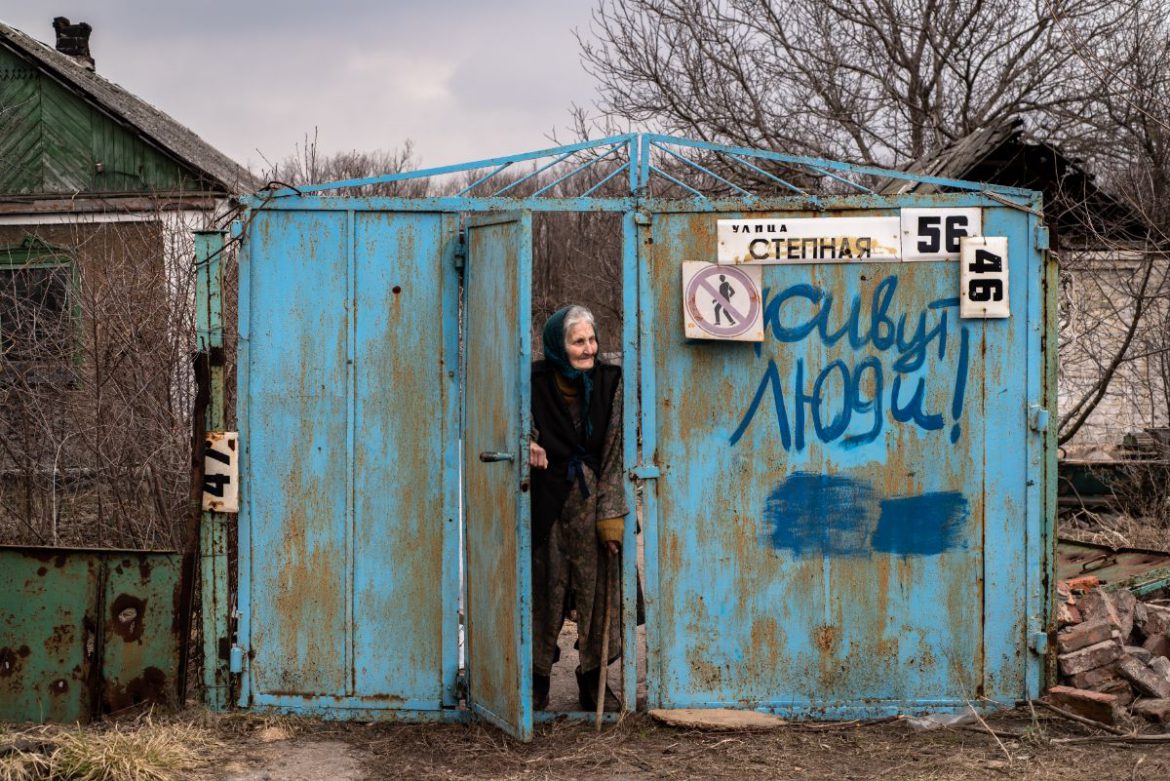People live here (Leute leben hier)
Exhibition im PANDA, täglich vom 17.09. bis 17.11.2019
Pipelines and frontlines – cooperation and conflict in eastern Ukraine // Rohrleitungen und Frontlinien –Zusammenarbeit und Konflikt in Ostukraine
Opening event on 17.09.2019, 17:00
Are you used to getting water running from the tap? But what if your water system was operated by your armed adversary? In the 21st century, armed conflicts often take place in highly urbanised settings and throw up problems we are not used to considering. How do you send utility bills if the consumers live on territory controlled by enemy armed groups? How can the water company repair a shelled infrastructure in the territory where the enemy is in charge? How can its employees work across a frontline? How do you make sure people are not deprived of one of life essentials’ – water?
We will discuss issues, which encourage conflicting parties in Ukraine to cooperate, on September 17 at 6:00 PM with researchers, representatives of NGOs working in Ukraine and people living on the frontlines in Panda theatre (Knaack strasse, Berlin, small courtyard of Kulturbrauerei). Discussion moderated by Stefan Melle, DRA.
The event marks the opening of the exhibition “People live here” by photographer Albert Lores, whose work (in cooperation with NGOs providing water to the war-affected in eastern Ukraine) explores what the water means for people living in the small locations along the frontline. “People live here”. This is what people who lived along the contact line wrote on their gates back in April 2014, when hostilities in eastern Ukraine began. These few words were a warning for the military to avoid shelling, or settling into their homes. Five years later, these inscriptions still hold true. Amid continuous fighting, which has often deprived people of one of life’s essentials – water, people live here, still. The Donbas area is highly industrialised, yet it has always been classified as water scarce. This is why engineers in the 1950s designed a massive water system carrying water more than 300 km, all the way from the Siverskyi Donets river, to Mariupol city. Prior to the conflict the system was already around 70 years old, with over-designed pumps, and pipelines that needed replacing. Since conflict started, lack of access for repairs, damage caused by shelling and explosions, and the difficult economic situation in eastern Ukraine now mean that water supply to 3.2 million people hangs in the balance
The event will be held in English
Due to the limited space please register with Nataliya.novakova@austausch.org to attend.
You can also visit the photo-exhibition every day between September 17 and November 17 at PANDA
Eintritt frei / Free entrance
Kindern und Jugendlichen unter 18 Jahren ist der Zutritt zu Veranstaltungen in PANDA platforma nur in Begleitung einer erziehungsbeauftragten oder personensorgeberechtigten Person in Verbindung mit jeweils einer gültigen Eintrittskarte gestattet. Grundlage: §5 JuSchG
